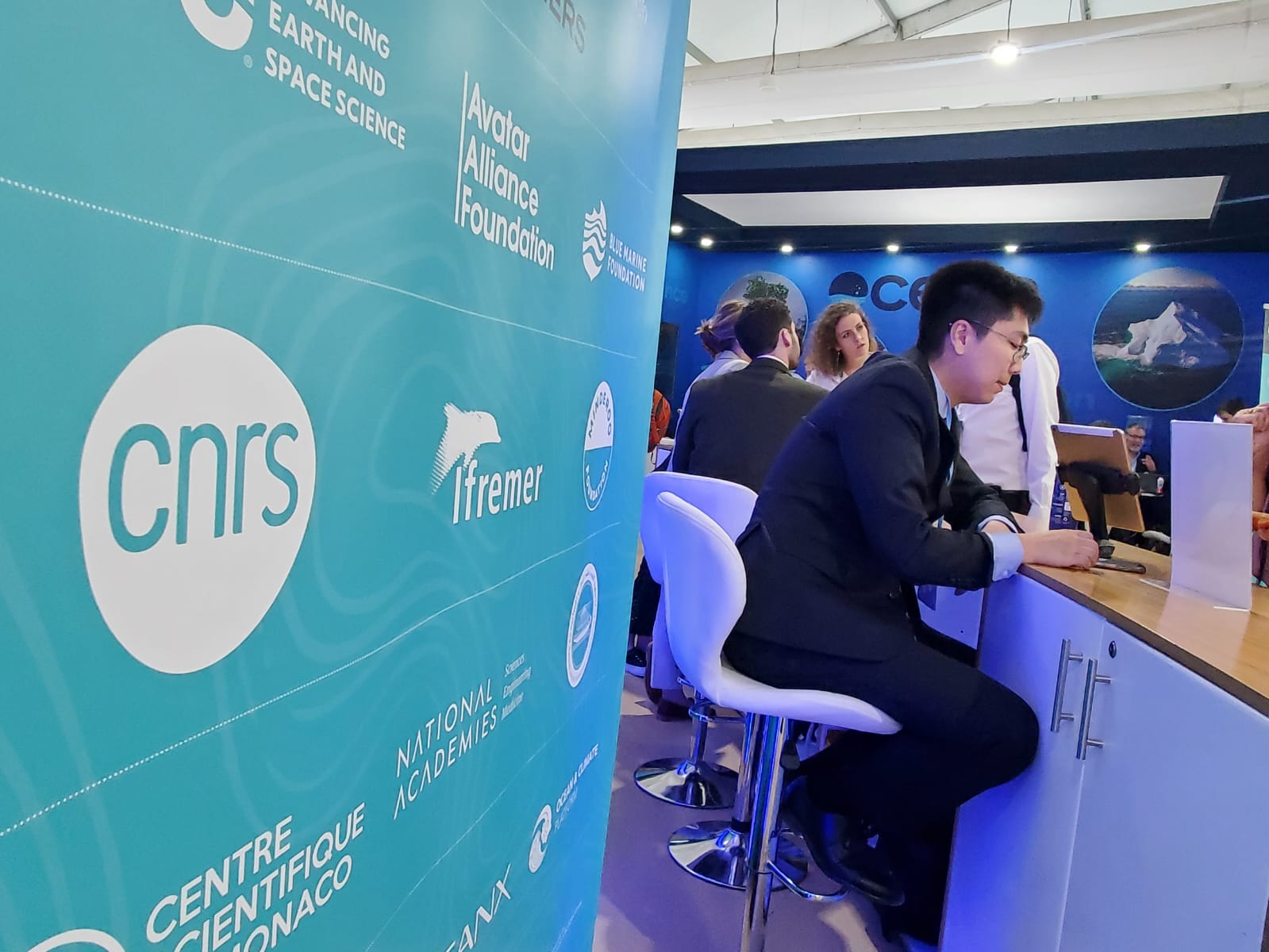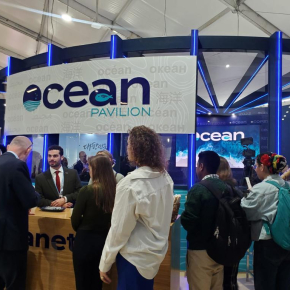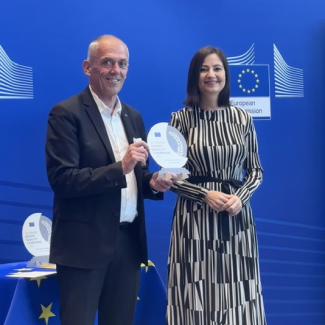
COP 27: “Thinking about oceans means thinking about our future society”
For the first time, the CNRS will be present, alongside numerous international scientific partners, at the COP 27 in Egypt, through a pavilion devoted to oceans. This will be an opportunity to emphasize their role in future challenges relating to the climate and biodiversity, as well as to promote the creation of the IPOS, a dedicated expert panel. We discussed these issues with Antoine Petit, CNRS Chairman and CEO, and Françoise Gaill, a CNRS scientific advisor and leader of the IPOS.
What are the objectives and expectations of the Conference of the Parties (COP 27) in Sharm El Sheikh, which will take place on 6-18 November?
Antoine Petit: This COP, which will be held on the African continent, is expected to be one of enactment. In recent years there have been many announcements without concrete results. Once again last year in Glasgow, the COP 26 ended with a mixed outcome, even as it was supposed to revisit numerous issues that remained unresolved, especially with respect to the implementation of the Paris Agreement. For instance, the goal of limiting warming to 1.5°C globally through commitments made by states, or the financial support of developed countries for developing ones. The latter are now expecting these announcements to be enforced.
Françoise Gaill: I believe the issues are four-fold: establish a robust work programme for mitigation1 , and increase the climate ambitions of all countries; go much further in adaptation strategies2 ; enhance and facilitate access to funding for climate action by guaranteeing $100 billion per year through 2025 for developing countries and small island developing states; and finally, strengthen the representation and active participation of all stakeholders, especially representatives from the most vulnerable communities, in order to reach a consensual, fair, and equitable agreement. If COPs are not followed by concrete actions, there is a fear of potential disinterest.

For the first time, oceans will play a central role at the COP thanks to the Ocean Pavilion. It was a long road to putting this issue on the negotiating table...
F.G.: The importance of oceans as a key actor in the climate system was clearly identified only in 2015, following the COP 21 in Paris. The Paris Agreement introduced, in its preamble, the notion of oceans as an ecosystem. In 2019, the Intergovernmental Panel on Climate Change3 (IPCC) special report on the ocean and the cryosphere confirmed the strong links between oceans and the climate, along with the changes already underway. The work of the Ocean & Climate Platform4 , in connection with NGOs and island states, also enabled major advances.
A.P.: The Ocean Pavilion is a major first, there has never been one on this topic during a COP. And it is led by scientific institutions from across the globe. Scientific research is crucial in promoting the central role of oceans, and for constructing enduring trajectories. We know the importance of oceans in climate-related issues, and would like this role to be part of the negotiations. We want to present all existing ocean-based mitigation and adaptation solutions. Today scientists have attained precise knowledge regarding the issues involved, and can propose concrete avenues for action.
The CNRS is a partner of this Pavilion alongside other international research organisations and NGOs. This is also the first time that a COP pavilion is being managed by a research institution. How will activities within the pavilion be organised?
A.P.: The pavilion will include a series of ‘side events’ designed by its various partners5 . Throughout the day, scientists, negotiators, policy-makers, and sponsors will meet to present actions relating to COP negotiation items. We will share successes as well as sticking points. We will serve as a relay for scientific teams’ contribution in terms of data sharing, observation, knowledge networks, and the science-policy interface. More specifically, the CNRS will organise two meetings: one will focus on climate/oceans/biodiversity, and present ocean-based adaptation and mitigation solutions, while the other will highlight the International Platform on Ocean Sustainability (IPOS) project led by Françoise Gaill. In addition, an MoU6 will be signed between the CNRS and the Woods Hole Oceanographic Institution7 .
The CNRS kept away from the science-policy interface for too long, even as other institutions and countries largely integrated science within their political decision-making. The Covid-19 crisis demonstrated the essential need for bringing knowledge into the political arena. We must once again provide science with the role it should have in society. By participating in this COP, the CNRS will continue to increasingly take on this role.

Françoise Gaill, you are leading the International Platform on Ocean Sustainability (IPOS) project, a kind of ‘IPCC for Oceans’. Where does the project stand?
F.G.: Oceans, climate, and biodiversity form part of an inseparable triptych. The creation of IPOS will enable a better understanding of how oceans react to changes affecting the other two elements, and up to what point they can continue to provide their current services. The IPOS will therefore seek to integrate scientific knowledge in an effort to model the evolution of the oceans, and outline actions for their sustainability.
We presented the IPOS during the One Ocean Summit8 in Brest in February 2022. Then, during the United Nations Ocean Conference held in Lisbon in June, we consolidated the interest of a number of research institutions on the subject, and began crafting a coalition of institutional actors with the CNRS, the Woods Hole Oceanographic Institution, Scripps9 , and Geomar10 . A study on the IPOS was recently accepted by the journal Ocean Sustainability, and will be published soon. In addition, the European Union now supports the IPOS, and has integrated it within its Ocean Strategy11 , with a view to making it an intergovernmental tool. Our objective now is to prepare proof of concept for the IPOS in order to present the project at the next UN conference, which will be held in France in 2025, and to be recognised by the organisation.
The CNRS is the only generalist research organisation in the Ocean Pavilion among the heavyweights of international oceanographic research. How does this provide added value?
A.P.: It is firstly a major issue for the CNRS, which is indeed the only institution covering all scientific disciplines. Our interdisciplinarity is a major advantage when it comes to oceans. Oceans need science, whether it relates to biology, oceanography, ecology, and chemistry – or to philosophy, economics, and history. Oceans are, by essence, an interdisciplinary subject, and the CNRS can play a driving role in helping to see them as a sustainability-related subject12 , for the more we advance, the more we understand that thinking about oceans means thinking about our future society.
F.G.: On the European level, we are lagging behind in sustainability science, which includes this notion of interdisciplinarity. Yet by virtue of its interdisciplinarity, the CNRS occupies a privileged position, and its Institute of Ecology and Environment in particular is becoming fully invested in sustainability science.
- 1Climate change mitigation includes actions seeking to mitigate the impact of human-induced global warming by reducing greenhouse gas emissions, as well as by capturing or sequestering atmospheric carbon dioxide.
- 2Climate change adaptation refers to the strategies, initiatives, and measures seeking to reduce the vulnerability of natural and human systems to the effects of global warming.
- 3The IPCC, which was created in 1988, aims to provide “comprehensive assessment reports about the state of scientific, technical, and socio-economic knowledge on climate change, its causes, potential impacts and response strategies”.
- 4The mission of the Ocean & Climate Platform is to foster reflection and exchange between the scientific community, civil society, and policy-makers, with a view to giving greater consideration to the ocean in the struggle against climate change and the erosion of biodiversity.
- 5Woods Hole Oceanographic Institution, Scripps (UC San Diego), AGU, Avatar Alliance Foundation, Blue Marine Foundation, CNRS, Ifremer, Minderoo Foundation, CSM, National Academies, National Oceanography Centre, National Institute of Oceanography & Fisheries, Ocean & Climate Platform, Ocean Policy Research Institute, Oceanx, Pacific Islands Forum Secretariat, POGO, Plymouth Marine Laboratory.
- 6Memorandum of Understanding.
- 7American center for teaching and research in all fields relating to marine science and engineering.
- 8International summit organised by France on the topic of ocean preservation.
- 9UC San Diego Institute of Oceanography.
- 10Kiel Centre for Ocean Research (Germany).
- 118th recommendation: support the creation of the IPOS.
- 12Sustainability refers to a configuration of human society that ensures its longevity.


